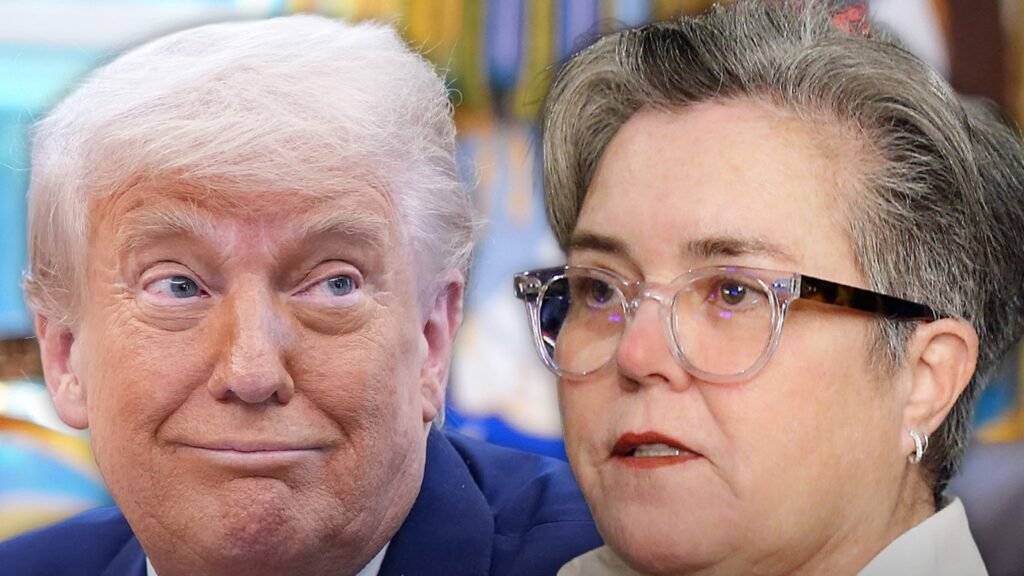Donald Trump Targets Rosie O’Donnell: A Controversial Citizenship Debate
In a dramatic turn of events, former President Donald Trump recently ignited controversy by suggesting on his Truth Social platform that he is contemplating revoking Rosie O’Donnell’s citizenship. This bold statement comes amid ongoing tensions and a deep-rooted feud between the two—one that has persisted for over a decade. His comments have raised questions about the limits of presidential power and the constitutional rights of American citizens.
Trump, expressing his disdain for O’Donnell, claimed she is “not in the best interests of our Great Country” and branded her a “Threat to Humanity.” He insinuated that O’Donnell, an outspoken critic of his presidency and policies, should consider residing in her ancestral homeland of Ireland. Despite the provocative nature of his remarks, it’s crucial to highlight that the 14th Amendment of the U.S. Constitution protects the citizenship status of those born or naturalized in the country. Therefore, any actual attempt to revoke citizenship would encounter significant legal challenges.
The feud between Trump and O’Donnell has escalated, particularly as O’Donnell relocated to Ireland following his inauguration in January 2017. The actress, known for her progressive activism and outspoken stance on social issues, cited safety concerns regarding the rights of all citizens as a driving factor for her decision. O’Donnell has expressed that the political climate under Trump’s administration has made it increasingly difficult for her to feel secure in the country she once called home.
Interestingly, Trump’s remarks came as a surprise, as his administration’s focus has often been on immigration policy rather than internal citizenship matters. The questioning of someone’s citizenship, especially based on political opposition, opens a broader discussion about the implications of such statements in a democratic society. Legal experts emphasize that citizenship is a fundamental right that cannot be revoked without due process, and any notion of doing so for political reasons threatens the very fabric of American democracy.
In response to Trump’s statements, TMZ reached out to Rosie O’Donnell’s representatives for comments, but as of yet, no official statement has been made. This may not be the last we hear about the ongoing feud, as O’Donnell could potentially use this opportunity to highlight her ongoing activism against Trump’s policies and draw attention to the rights of other citizens who may be marginalized under similar rhetoric.
As the public continues to react to Trump’s comments, this episode serves as a reminder of how political disputes can sometimes escalate into personal attacks. While Trump’s statements may have been made in a moment of frustration, they reflect the polarized atmosphere currently defining American politics. As such, maintaining respect and civility in political discourse is an ongoing necessity in order to foster a conducive environment for democracy and unity.
In conclusion, Trump’s provocative assertion that he could revoke Rosie O’Donnell’s citizenship highlights not just the personal animosity between two public figures but also raises critical questions about the rights enshrined in the Constitution. As the political landscape evolves, it will be essential for all citizens to remain vigilant about their rights and the implications of political speech. In a time where everyone’s citizenship can be challenged for merely voicing an opinion, the need for open and respectful dialogue across the political spectrum has never been more crucial.
This escalating feud not only emphasizes the ongoing rift in American politics but also serves as a call for civil engagement, urging citizens to reflect on the values that underpin democracy and citizenship in the U.S.









